Horses
Understanding the Effects of Stress on Your Horse’s Brain and Body
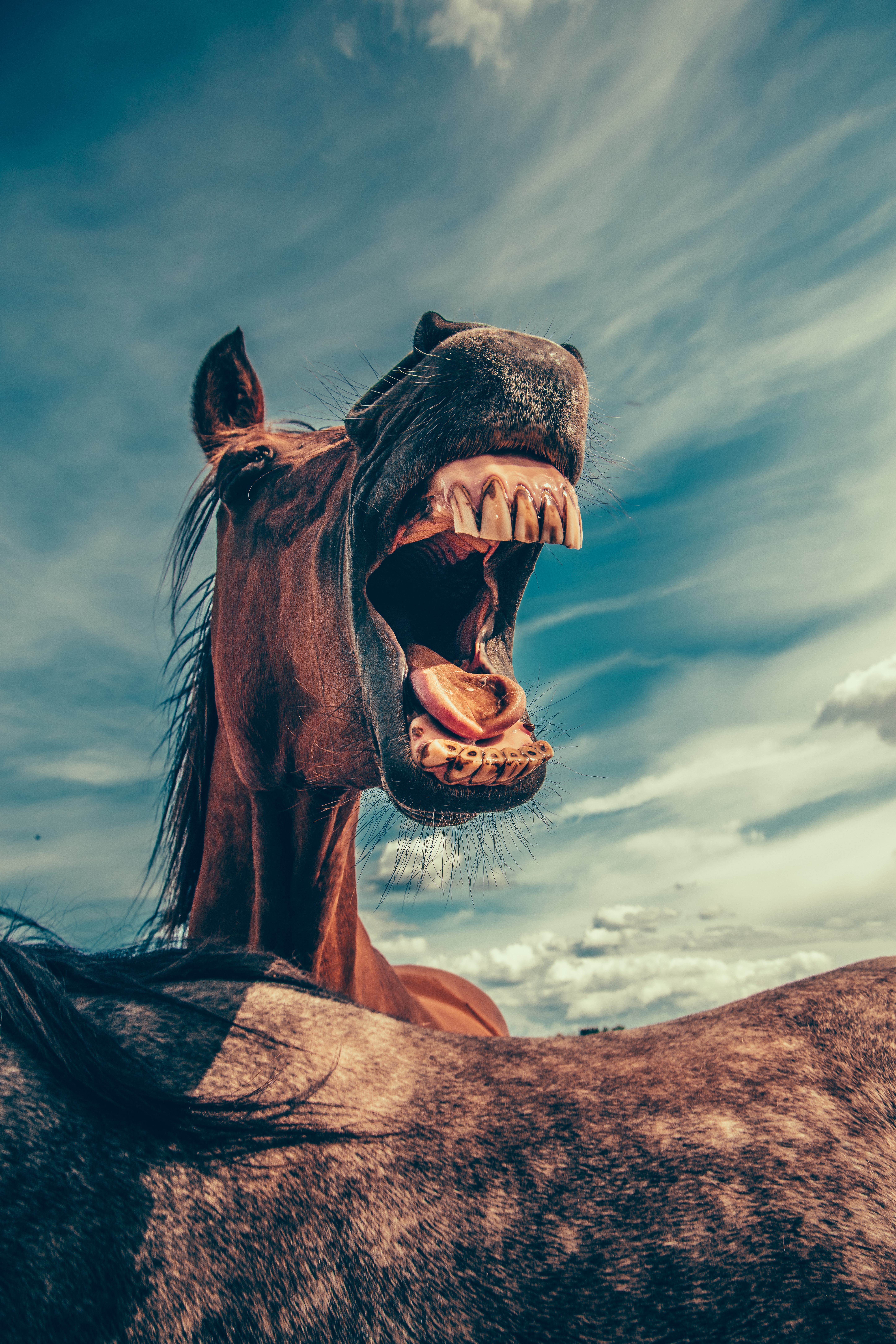
Just like humans, horses can experience stress that affects their physical and emotional well-being. Whether it’s from environmental changes, training, or competition, stress can significantly impact your horse’s brain and body. Understanding the effects of stress on your horse is crucial to maintaining their health and happiness. In this article, we will explore how stress affects your horse’s brain and body and provide tips on how to manage stress levels. By learning how to recognize signs of stress in your horse and implementing strategies to reduce it, you can help your horse lead a healthier and happier life.
1. Introduction to stress in horses
Stress in horses is a common issue that can significantly impact their overall health and well-being. Horses are sensitive animals and can experience stress in a variety of situations, including changes in their environment, social interactions, and physical discomfort. Horse owners and caretakers need to understand the effects of stress on their horse’s brains and bodies to identify and address any underlying issues.
When a horse experiences stress, its body releases a hormone called cortisol. This hormone can have both short-term and long-term effects on the horse’s health. In the short term, cortisol can help the horse respond to and cope with stressful situations. However, prolonged or chronic stress can result in elevated cortisol levels, which can have negative effects on the horse’s immune system, digestion, and other bodily functions.
Stress can also have an impact on a horse’s behavior, causing them to exhibit signs of anxiety or even aggression. This can make handling and training the horse more difficult and can also affect their performance in competitions.
Overall, understanding the effects of stress on horses is essential for ensuring their health, well-being, and overall quality of life. By identifying and addressing sources of stress, horse owners and caretakers can help their animals lead happier, healthier lives.
- 2. Understanding the horse’s physiological response to stress
Horses, like humans, have a physiological stress response. When a horse is exposed to a stressful situation, whether it be an unfamiliar environment, a new companion, or a loud noise, its body goes into “fight or flight” mode.
This is because the horse’s body releases adrenaline, a hormone that prepares the horse to either run away or stand and fight. As a result, the horse’s heart rate and respiratory rate increase, their muscles tense up, and their blood pressure rises.
If the horse remains in a state of stress for an extended period, it can negatively affect its body and overall health. Chronic stress can weaken the horse’s immune system, making them more susceptible to illness and disease. It can also cause digestive issues, such as ulcers, and lead to weight loss and other behavioral problems.
Horse owners need to recognize signs of stress in their horses and take steps to reduce the stressors in their environment. This can include providing a calm and consistent routine, ensuring access to adequate food and water, and providing a safe and comfortable living environment.
By understanding the horse’s physiological response to stress, horse owners can take proactive steps to promote their horse’s overall health and well-being.
- Behavioral signs of stress in horses
Horse owners need to understand the behavioral signs of stress in their horses. Horses, like humans, can experience stress and it can hurt their overall health and well-being.
One of the most common behavioral signs of stress in horses is restlessness. Horses that are stressed may become agitated and fidgety, often pacing back and forth or circling their stall. They may also become easily spooked and reactive to their environment, showing signs of anxiety and fear.
Another common behavioral sign of stress in horses is a decrease in appetite. Horses that are stressed may lose interest in their food or water, which can lead to dehydration and malnutrition if left untreated. They may also have a decreased interest in social interaction with other horses or with their owners, becoming more isolated and withdrawn.
Other signs of stress in horses can include changes in their posture, such as a hunched back or lowered head, and an increase in their heart rate and respiratory rate. It’s important for horse owners to be aware of these signs and to take steps to reduce their horse’s stress levels. This can include providing a calm and stable environment, reducing exposure to stressful stimuli, and ensuring that their horse’s basic needs for food, water, and social interaction are being met.
- Types of stressors that horses may experience
Horses, like humans, can experience a variety of stressors that can affect their physical and emotional well-being. These stressors can be categorized into two main types: acute stressors and chronic stressors.
Acute stressors are sudden and short-lived events that can cause a temporary increase in heart rate, breathing rate, and other physiological responses. Examples of acute stressors that horses may experience include sudden loud noises, unfamiliar surroundings, and unexpected movements or actions from their handlers.
Chronic stressors, on the other hand, are long-lasting and ongoing events that can lead to prolonged periods of stress and anxiety. These types of stressors can have a more significant impact on a horse’s overall health and well-being. Examples of chronic stressors that horses may experience include social isolation, inadequate nutrition, and confinement in a small space for extended periods.
Horse owners and handlers need to be aware of the different types of stressors that their horses may experience and take steps to minimize their impact. This can include providing adequate socialization, nutrition, and exercise, as well as creating a calm and predictable environment for the horse to live in. By understanding the effects of stress on their horse’s brain and body, owners and handlers can help to ensure their horse remains healthy and happy for years to come.
- The impact of stress on a horse’s brain and body
Stress can have a significant impact on a horse’s brain and body. When a horse is exposed to a stressful situation, such as being separated from their herd or being transported to a new location, their body releases stress hormones such as cortisol and adrenaline.
These hormones can have several negative effects on the horse’s body, including increased heart rate, respiration rate, and blood pressure. Over time, chronic stress can also weaken the horse’s immune system, making them more susceptible to illness and disease.
In addition to the physical effects, stress can also have a profound impact on a horse’s behavior and emotional well-being. Horses that are exposed to chronic stress may become anxious or depressed and may exhibit behaviors such as weaving, cribbing, or stall walking.
It’s important for horse owners to understand the impact of stress on their horse’s brain and body, and to take steps to minimize their horse exposure to stressful situations. This may include providing a calm and predictable environment, ensuring that their horse has access to plenty of forage and water, and gradually introducing them to new experiences in a controlled and positive manner. By taking these steps, horse owners can help to keep their horses healthy and happy, both physically and emotionally.

- How to manage and reduce stress in horses
Managing and reducing stress in horses is crucial for their overall health and well-being. Here are some tips on how to do it:
1. Provide a comfortable living environment: Horses need space to move around, access to clean water, and good quality hay or pasture. Make sure their living environment is comfortable, clean, and safe.
2. Establish a routine: Horses thrive on routine, so establish a consistent feeding, grooming, and exercise schedule. This will help reduce their anxiety and keep them calm.
3. Use natural remedies: Many natural remedies can help reduce stress in horses, such as chamomile, valerian root, and lavender. These remedies can be administered as supplements or essential oils.
4. Provide social interaction: Horses are social animals, so it’s important to provide them with opportunities for social interaction. Whether it’s with other horses or with humans, social interaction can help reduce stress and increase their overall well-being.
5. Practice relaxation techniques: Just like humans, horses can benefit from relaxation techniques such as massage, stretching, and breathing exercises. These techniques can help reduce tension and promote relaxation.
By following these tips, you can help manage and reduce stress in your horse, which will lead to a happier and healthier animal.
- Importance of quality nutrition and hydration
Quality nutrition and hydration play a vital role in keeping your horse healthy, especially during times of stress. When your horse is experiencing stress, its body goes into a heightened state, resulting in increased metabolism and energy usage. This increased energy usage means that your horse requires more nutrients and fluids to maintain its overall health and function properly.
During times of stress, it’s important to provide your horse with a balanced and nutritious diet to support its body’s increased energy requirements. Providing high-quality forage and supplementing your horse’s diet with essential vitamins and minerals can help support their immune system and promote overall well-being.
In addition to nutrition, adequate hydration is also crucial for maintaining your horse’s health during times of stress. Dehydration can lead to a host of health issues, including colic and digestive problems. Providing your horse with access to fresh, clean water throughout the day can help to promote hydration and support proper digestion.
When it comes to managing stress in horses, proper nutrition and hydration are essential components of a comprehensive care plan. By ensuring your horse has access to high-quality feed and clean water, you can help support its overall health and well-being during even the most challenging times.
- Consistency in routine and training
Horses, like humans, thrive on consistency. They are creatures of habit and love routines. When there are sudden changes in their environment, it can cause stress and lead to unwanted behavior. Therefore, it’s important to establish a consistent routine for your horse, including feeding, exercise, turnout, and training.
In terms of training, consistency is crucial. Horses will learn and adapt to a certain routine or pattern, and it’s important to stick to this routine so the horse knows what to expect. Changing things up too frequently can cause confusion and stress for the horse, leading to a decrease in performance and an increase in unwanted behavior.
It’s also important to be consistent in your training methods. Horses respond well to positive reinforcement and reward-based training, so it’s important to stick to these methods and avoid punishment-based training techniques that can lead to fear and anxiety.
Overall, consistency in routine and training can have a positive impact on your horse’s mental and physical well-being, leading to a happier and more well-adjusted animal.
- Using natural remedies and supplements to promote relaxation
When it comes to promoting relaxation in horses, natural remedies and supplements can be a great option. These remedies can help your horse cope with stress and anxiety, and promote a calm and relaxed state of mind.
One popular natural remedy is chamomile, which has been shown to have a calming effect on horses. Chamomile can be given to horses in the form of tea or added to their feed.
Another natural remedy that has gained popularity in recent years is CBD oil. CBD oil has been shown to have anti-anxiety properties and can help horses relax and feel calmer.
Supplements such as magnesium and B vitamins are also great options for promoting relaxation in horses. Magnesium is known to have a calming effect on the nervous system, while B vitamins can help support the adrenal glands, which play a key role in managing stress.
However, it’s important to note that natural remedies and supplements should be used in conjunction with proper training and management techniques. While they can help promote relaxation, they should not be relied upon as the sole solution for managing stress in horses. Consulting with a veterinarian or equine nutritionist can help determine the best natural remedies and supplements for your horse’s specific needs.
- Conclusion and the importance of being mindful of your horse’s stress levels
In conclusion, stress can significantly impact your horse’s brain and body. It’s important to recognize the signs of stress and take proactive measures to alleviate the sources of stress.
Some of the common signs of stress in horses include changes in behavior, appetite, and physical symptoms such as sweating or rapid breathing. Stress can also lead to long-term health issues such as gastrointestinal problems, weakened immune systems, and reproductive issues.
As horse owners, it’s our responsibility to be mindful of our horse’s stress levels and take steps to reduce stress when possible. This includes providing a safe and comfortable environment, providing ample turnout time, offering regular exercise and social interaction, and minimizing changes to the horse’s routine.
In addition to these measures, it’s also important to work with a veterinarian or equine behaviorist to address any underlying health or behavioral issues that may be contributing to your horse’s stress.
By being aware of your horse’s stress levels and taking proactive steps to reduce stress, you can help ensure that your horse remains healthy and happy for years to come.
We hope that our article about the effects of stress on your horse’s brain and body has been informative and helpful. We know that owning and caring for a horse can be a challenging task, and stress is an issue that can’t be overlooked. By understanding the causes and effects of stress on your horse, you can take steps to prevent and manage it. Remember to give your horses the love and care they need, and they will give it back to you in so many ways.
Read Also:
10 Important Considerations You Must Know Before Owning a Horse!
Beginner’s Guide to Understanding Common Horse Terms
0 Comments
Leave a Reply
Cancel reply
Horses
How to Estimate Monthly Horse Training Costs on Your Own
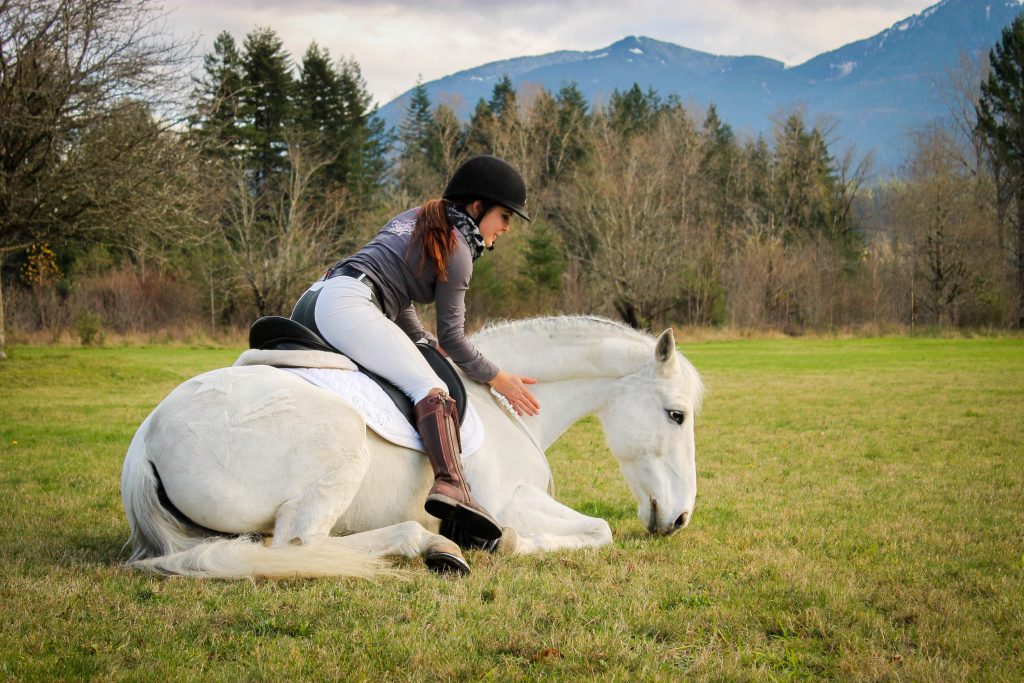
When you are considering horse training for your beloved steed, one of the most important aspects to consider is the cost. Whether working with a professional horse trainer or teaching your horse yourself, estimating the monthly costs associated with horse training is important. This blog post will help you to better understand how to accurately estimate the monthly costs of horse training so you can make an informed decision about the best option for you and your horse.
Horses
Beginner’s Guide to Understanding Common Horse Terms
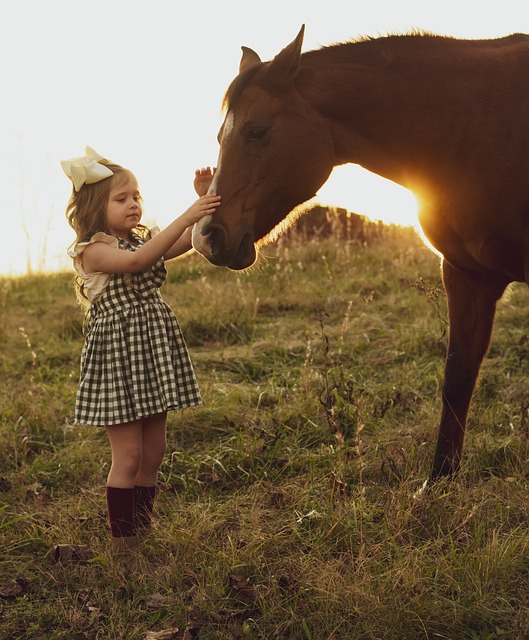
Are you new to the world of horses and feeling overwhelmed by the seemingly endless list of horse terms? Don’t worry! This beginner’s guide will help you understand the most common horse terms so you can start conversing with experienced horse owners with confidence. From body parts to colors to gaits, this guide will explain the basics of horse terms so you can better understand this amazing animal.
Mare: a female horse over the age of four
When it comes to horse terminology, one of the first words you should know is “mare.” A mare is a female horse that is at least four years old. Mares are commonly used for riding, racing, and breeding. They are known for their gentle and nurturing nature, making them a popular choice for those who are new to horse riding or training.
Mares go through a natural reproductive cycle, which is why they are commonly used for breeding purposes. They are angry foals for approximately 11 months, after which they give birth to a beautiful baby horse. Many mares are also used for horse shows, as they are elegant and graceful in the arena.
It’s important to note that not all mares are suitable for riding or breeding. Some mares can be quite temperamental and may require a skilled and experienced trainer to handle them. In general, however, mares are gentle and loving animals that can form a strong bond with their owners and riders.
If you are looking to get involved in horse riding or horse breeding, understanding the term “mare” is essential. Knowing the different terms associated with horses can help you communicate more effectively with other horse enthusiasts and experts in the field.
Colt: a male horse under the age of four
If you’re new to the world of horses, the term “colt” might be confusing. But don’t worry, we’re here to clear it up for you. A colt is simply a male horse under the age of four. Once a male horse reaches the age of four, he is then referred to as a stallion if he’s used for breeding, or a gelding if he’s been castrated.
Colts are usually born in the spring or summer and are weaned from their mothers between four and six months of age. At this point, they’ll be separated from their dams and placed in a pasture with other young horses. They’ll spend the next few years growing and learning, and will eventually be trained for riding or driving.
It’s important to note that while colts may be playful and curious, they can also be dangerous if they’re not handled correctly. If you’re new to horses, it’s best to leave handling young colts to experienced professionals. In addition, it’s important to keep colts separated from mares unless they’re being bred intentionally. Male horses can be aggressive and territorial, especially around mares, so it’s important to exercise caution.
Now that you understand what a colt is, you can impress your horsey friends with your knowledge. And who knows, maybe someday you’ll even own a colt of your own!
Stallion: a male horse used for breeding
Stallions are male horses that are kept for breeding purposes. They are highly prized in the horse world for their ability to produce offspring with desirable traits such as speed, strength, and agility. However, owning and breeding a stallion requires a lot of knowledge and experience, as these horses can be quite difficult to handle.
Stallions are known for their aggressive behavior, which can be a result of their instincts to protect their mares and offspring. They may also exhibit territorial behavior, which can be dangerous for both humans and other horses. As such, it is important to always exercise caution when handling a stallion and to seek the advice of experienced trainers and handlers when working with them.
In addition to their behavior, stallions are also recognized by their physical characteristics. They tend to have a more muscular build than mares or geldings and may have a thicker neck and stronger jaw. They may also have a more prominent mane and tail, which is often styled for show.
Breeding a stallion requires careful consideration, as the stallion’s genetic traits will be passed down to its offspring. As such, it is important to choose a stallion with desirable traits, such as good conformation, soundness, and a proven record of producing successful offspring. This is typically done through research, and by seeking the advice of veterinarians and other horse professionals.
Overall, stallions are a valuable asset in the horse world but require a lot of knowledge and experience to handle properly. If you are considering owning or breeding a stallion, it is important to do your research and seek the advice of experienced professionals to ensure that you make informed decisions and provide the best possible care for your horse.
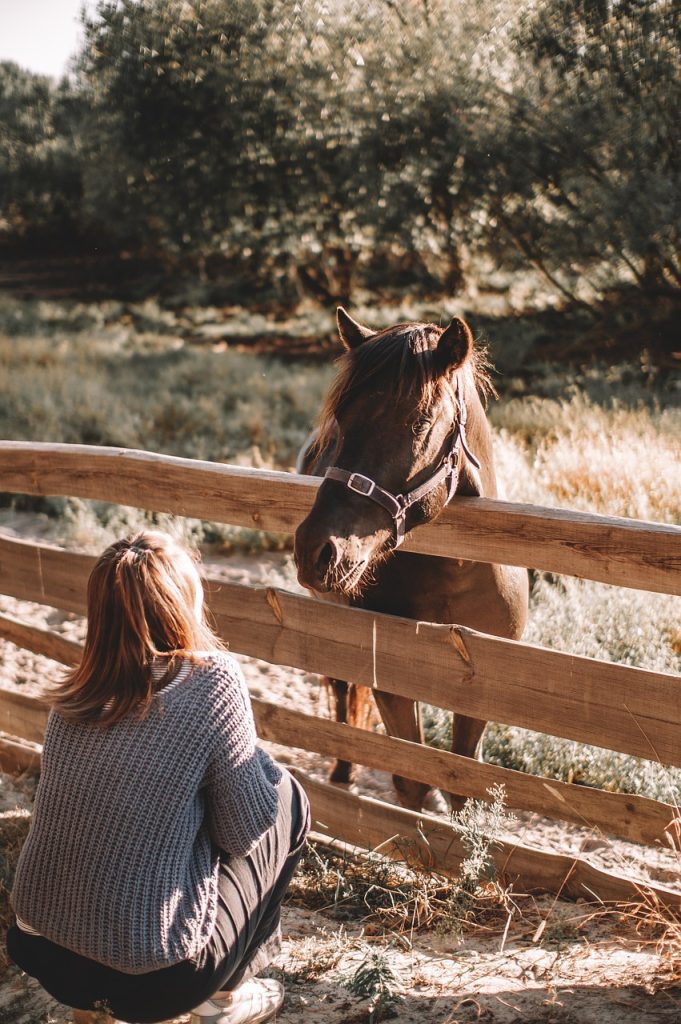
Gelding: a castrated male horse
A gelding is a male horse that has been castrated. This means that their testicles have been removed, making them incapable of breeding. Geldings are popular in the horse world for a variety of reasons, including their even temperaments and trainability.
Geldings tend to have more consistent and predictable behavior than stallions, as they don’t experience the hormonal surges that can cause stallions to become aggressive or unpredictable. They also tend to be easier to train and handle than stallions, which is why many riders and trainers prefer working with them.
Geldings come in all shapes and sizes, just like any other horse. They can be used for a wide range of activities, from trail riding to show jumping. Because they tend to be easier to manage than stallions, many riding schools and equestrian centers will use geldings for lessons and other activities.
While gelding a horse may seem extreme, it’s a relatively common procedure that is often done for the safety and well-being of the horse and those around them. It can also help reduce unwanted behavior in male horses, making them more suitable for certain activities and environments.
Overall, geldings are an important part of the horse world, and understanding what they are and what they can do is an important part of being a horse owner or rider.
Filly: a female horse under the age of four
When it comes to horses, it’s important to understand the different terms used to describe them, especially if you’re new to the equine world. One such term is “filly,” which refers to a female horse that is under the age of four.
Filly’s are young female horses that are full of energy and curiosity. They’re usually very playful and love to run and play. They have yet to reach maturity, and they’re still developing both physically and mentally. At this age, they require plenty of attention and care to help them grow up to be healthy and happy horses.
Filly’s are often trained and worked with from a young age. It’s important to start their training slowly and carefully, focusing on building trust and a good foundation for their future development. As they grow and mature, they can be trained for a variety of disciplines, from racing to dressage and more.
One thing to keep in mind when working with filly’s is that they can be a bit temperamental at times. This is natural for young horses, but it’s important to be patient and consistent in your training to help them become well-behaved and obedient horses.
Overall, filly’s are an exciting part of the equine world. Whether you’re looking to train them for a specific discipline or simply enjoy their playful nature, these young female horses are sure to capture your heart. So if you’re just getting started with horses, familiarize yourself with the term “filly” and prepare for an exciting journey!
Foal: a baby horse of either gender
One of the most adorable and endearing sights in the world of horses is a foal, a baby horse. Whether you’re an experienced horse enthusiast or just beginning to learn about these magnificent creatures, it’s important to understand what a foal is and how it fits into the equine world.
A foal refers to a horse that is still in its infancy, typically under the age of one year old. This term can be applied to both male and female horses. Foals are the product of the breeding process and are born after a gestation period of around 11 months. Watching a foal take its first steps and interact with its mother is truly a heartwarming experience.
As foals grow, they go through various stages of development. In the first few days of their lives, they rely entirely on their mother’s milk for nutrition. Foals must receive adequate colostrum, the first milk produced by the mare, which contains essential antibodies for their immune system.
As they grow older, foals start to eat solid food alongside their mother’s milk. This transition period, usually around two to four months old, is known as weaning. It’s a significant milestone for both the foal and the mare as they adjust to a new routine and the foal becomes more independent.
Foals have a playful and curious nature, spending much of their time frolicking in pastures, exploring their surroundings, and engaging in social interactions with other foals. These activities are crucial for their physical and mental development, as they learn important skills and establish social hierarchies.
During this period, foals need to receive proper care and attention from their owners or caretakers. Regular veterinary check-ups, deworming, and vaccinations are necessary to ensure their health and well-being. Additionally, providing a safe and secure environment, along with appropriate nutrition, is essential for their growth and development.
As foals approach their first birthday, they lose their « baby » appearance and resemble adult horses more closely. This transition, known as the yearling stage, marks the end of their foalhood and the beginning of their journey into adulthood.
Pony: a small horse
Ponies are smaller breeds of horses, typically measuring 14.2 hands (58 inches) or less at the withers (the highest point of the horse’s back). They are often mistaken for young horses, but they are fully mature adults.
Ponies are known for their strength, agility, and surefootedness, making them well-suited for various activities, such as driving, riding, and pulling. They are also popular for children and smaller riders due to their smaller size.
There are various types of ponies, each with unique characteristics and uses. Some popular pony breeds include Shetland, Welsh, and Connemara.
Despite their size, ponies require the same amount of care and attention as their larger equine counterparts. This includes regular exercise, feeding, grooming, and veterinary care. It’s important to research the specific needs of your pony breed to ensure they stay healthy and happy.
Read Also :
Feeding and Breeding Horses: The Do’s and Don’ts
10 Important Considerations You Must Know Before Owning a Horse!
Horses
The Moral Conundrum of Eating Horses!
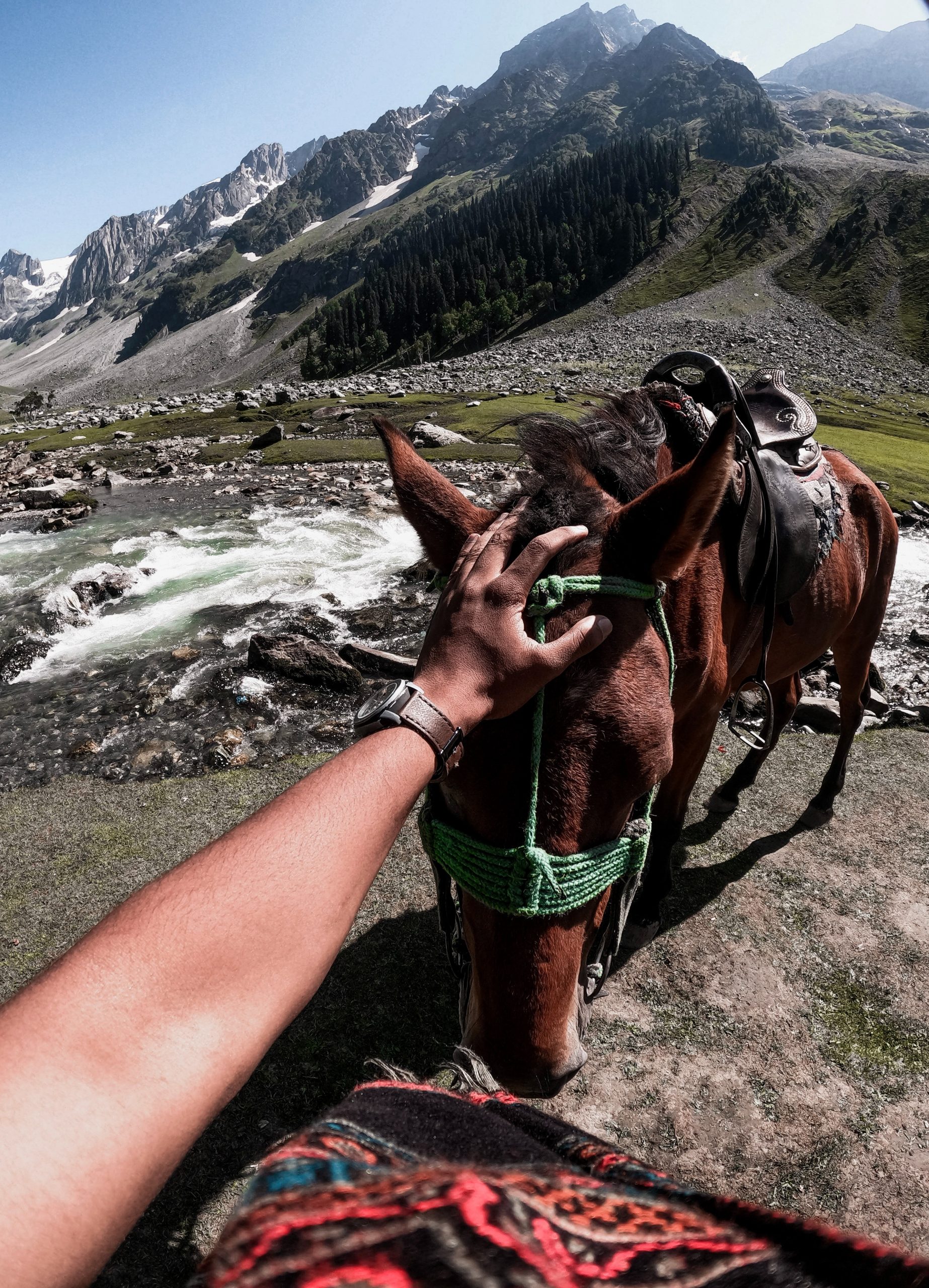
Horses are currently banned from human consumption in the United States, but this hasn’t always been the case. Before being made illegal in 2006, up to 100,000 horses were slaughtered every year in the US alone. This prompted an ethical debate regarding whether horses should be allowed as food or not, and many believed that horses should not be consumed by humans due to their intelligence and capacity to experience fear and pain. However, other arguments have been made that dispute this idea and say that horses can just as well be killed for human consumption as cows or chickens are. So what do you think about eating horses?
Is eating horses, right?
There’s been a long-standing debate about whether or not horses should be eaten. Horse meat is still eaten in other countries such as France, Belgium, and Italy. But for whatever reason, horse consumption has never really caught on in North America. The idea of eating horses is often met with disgust and fear. After all, many people treat their horses like family members.
But what if the only alternative to eating a horse was starving? If it would take more food to keep the animal alive than it would feed an average human being – then it might make sense to eat the horse. In this case, you might consider it justifiable to kill and eat a horse to avoid starvation. But what if there wasn’t an alternative?
What are the arguments in favor of horse consumption?
Horses are domesticated animals and as such, they have adapted to living in our world. They have grown accustomed to humans and the ways that we live. The people who care for them have likely become their friends, feed them treats, and give them affection. If a horse is treated well throughout its life, then it seems logical that it would not mind being killed to provide us with food.
If a horse is treated well throughout its life, then it seems logical that it would not mind being killed to provide us with food. There’s also the argument that because horses evolved alongside humans, their meat could be the most natural option for human consumption out there.
What are the arguments against horse consumption?
Some would argue that eating horses is morally wrong because it is unnecessary. The horse population in the U.S. has been dwindling for years and most horse owners are reporting a surplus of horses, so why take away what little food they have? Furthermore, there is no reason to eat horses when we produce enough beef and chicken to feed the entire country, not to mention the billions of other animal sources around the world that could be used as food. Horse meat also poses an increased risk of developing certain diseases such as Mad Cow Disease or Encephalitis.
Some would argue that eating horses is morally wrong because it disrespects their role in society as companion animals.
Conclusion
Today, horse consumption is a controversial topic. Those in favor argue that horses are a renewable resource and they have not been overpopulated like other animals like cows or pigs. However, opponents argue that eating horses is immoral and creates an unsustainable population of hungry humans and hungry horses. We may never come to a consensus on the ethics of eating horses, but one thing is for sure: you should at least know what you’re getting into before deciding on something as serious as this.
Read Also :
Feeding and Breeding Horses: The Do’s and Don’ts
10 Important Considerations You Must Know Before Owning a Horse!
Trending

 Cats1 year ago
Cats1 year agoDon’t Feed Your Cat These 8 Foods!

 Cats11 months ago
Cats11 months agoWhy Do Cats Spray and How Can You Stop Them? Insights into Urine Spraying in Male Cats

 Cats10 months ago
Cats10 months agoThe Ins and Outs of Cat Sterilization: Removing the Female’s Ovaries

 Cats10 months ago
Cats10 months agoPre-Vaccination Prep: Getting Your Cat Ready

 Cats9 months ago
Cats9 months agoWhy Kittens are Born Dead or Deformed

 Dogs2 years ago
Dogs2 years agoSo You’re Thinking About Getting a Poodle

 Dogs10 months ago
Dogs10 months agoWhat to Do With Your Dog’s Body After Death: A Guide for Pet Owners

 Cats9 months ago
Cats9 months agoSigns of Cat Pregnancy Week by Week




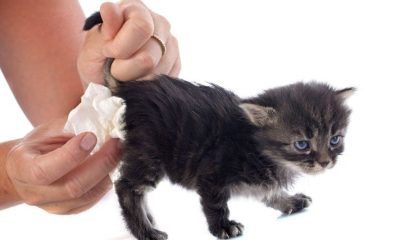













Pingback: Feeding and Breeding Horses: The Do's and Don'ts